ARRAYYAN CARE
Newborn Baby Care
Newborn Baby Care
Couldn't load pickup availability
Expert Care for Your Little One
Our dedicated team of experienced nurses and caregivers is here to provide comprehensive newborn care, ensuring the health and well-being of your precious baby.
Our services include:
-
Newborn Care:
* Bathing and diaper changing
* Feeding and burping
* Sleep monitoring
* Temperature regulation - Infant Massage: Gentle massage techniques to promote relaxation and bonding.
- Developmental Monitoring: Tracking your baby's developmental milestones.
- Postpartum Care: Assisting new mothers with breastfeeding, recovery, and emotional support.
- Infant CPR and First Aid Training: Teaching parents essential life-saving skills.
Choose Arrayyan Care for:
- Experienced Caregivers: Our caregivers are highly trained and experienced in infant care.
- Personalized Care: We tailor our services to meet your needs and preferences.
- Peace of Mind: Knowing your baby is in safe and caring hands.
Let us help you cherish the precious moments of newborn care.
Share
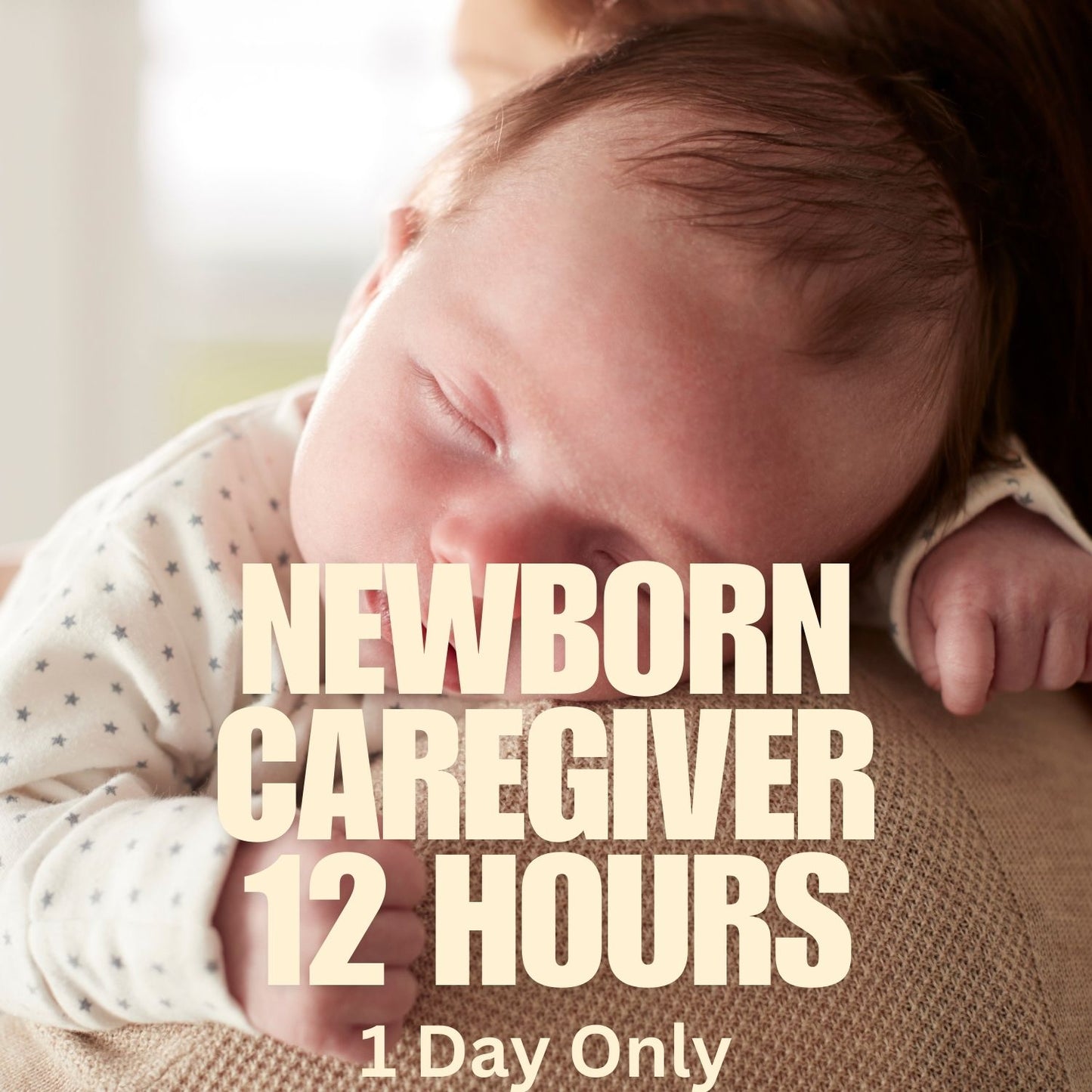
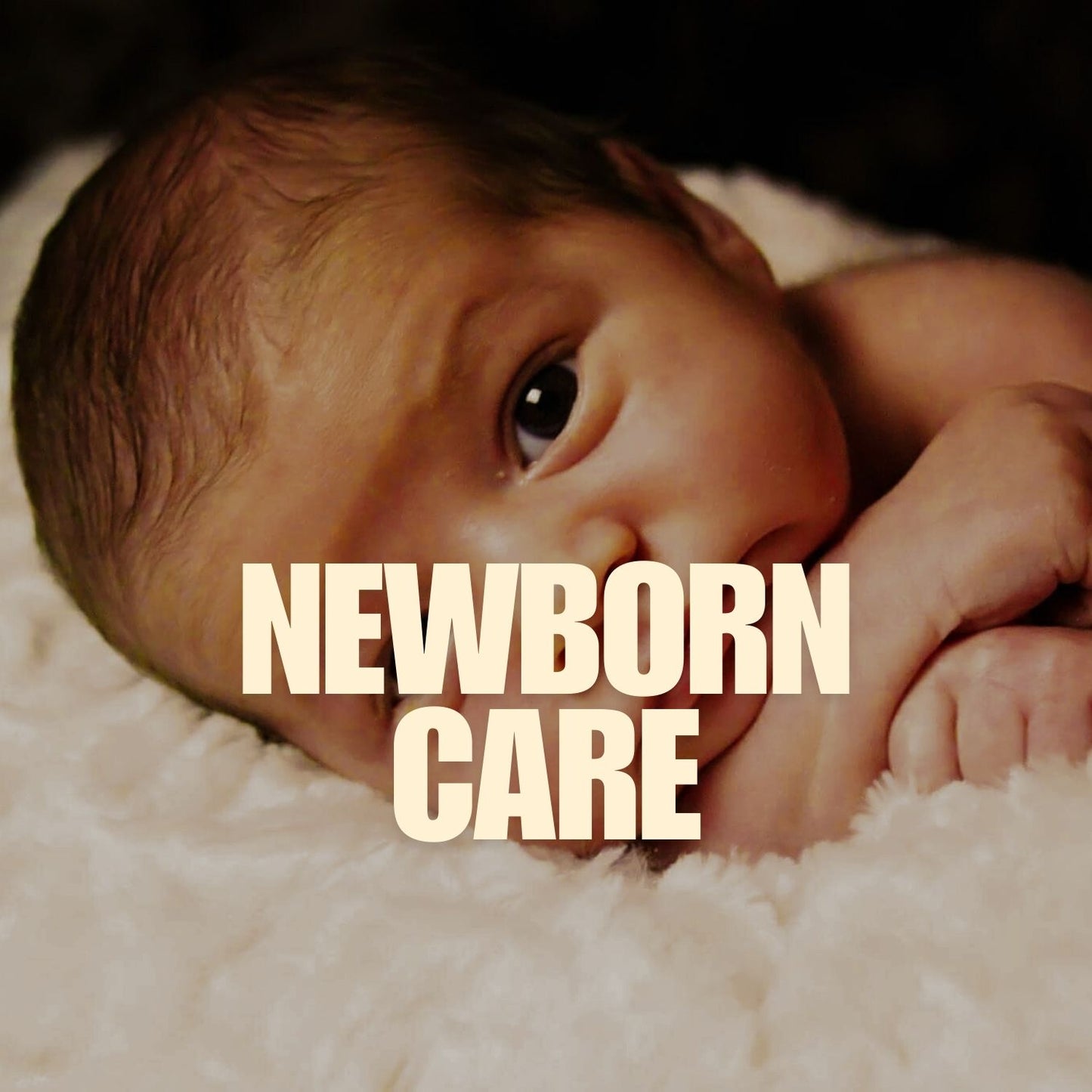
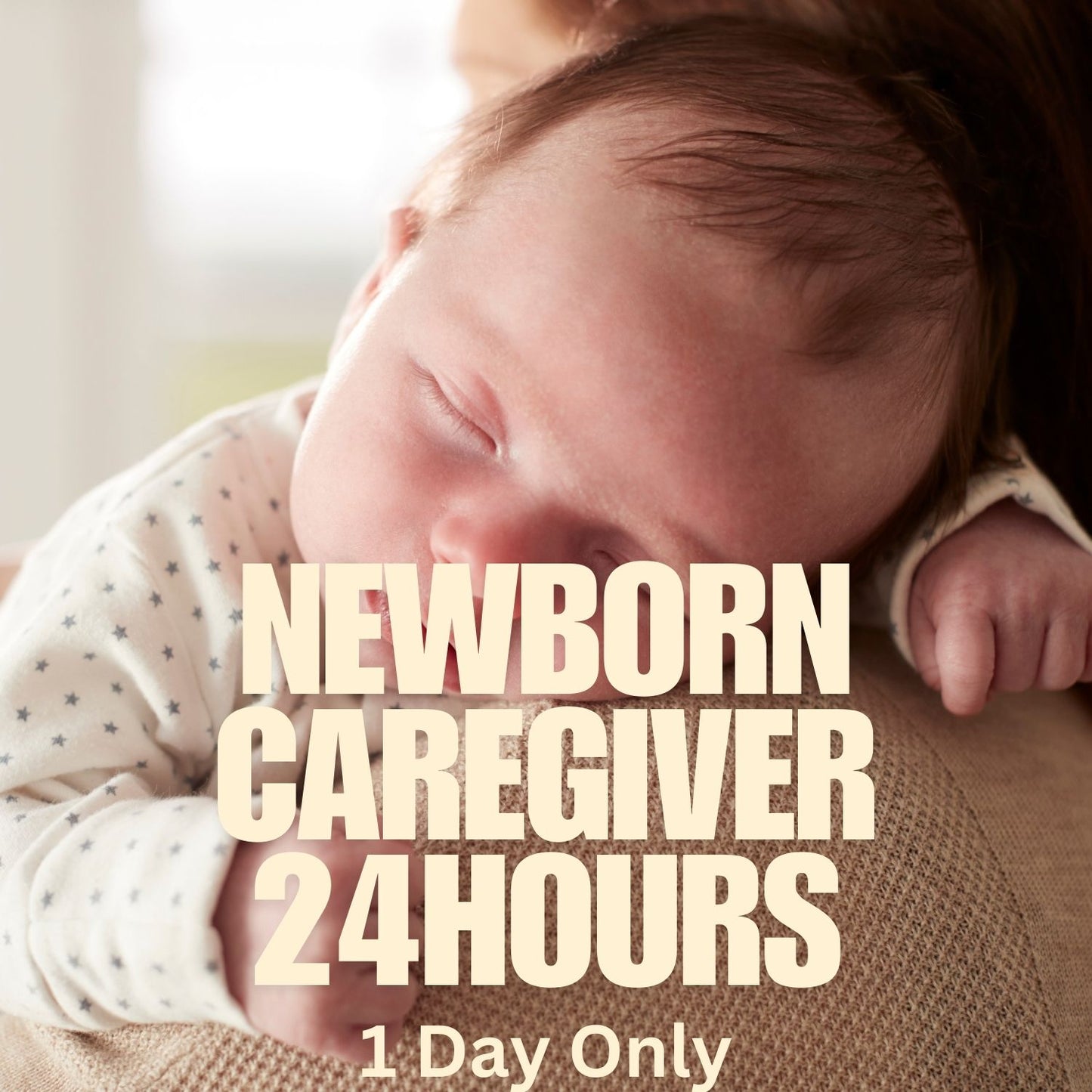
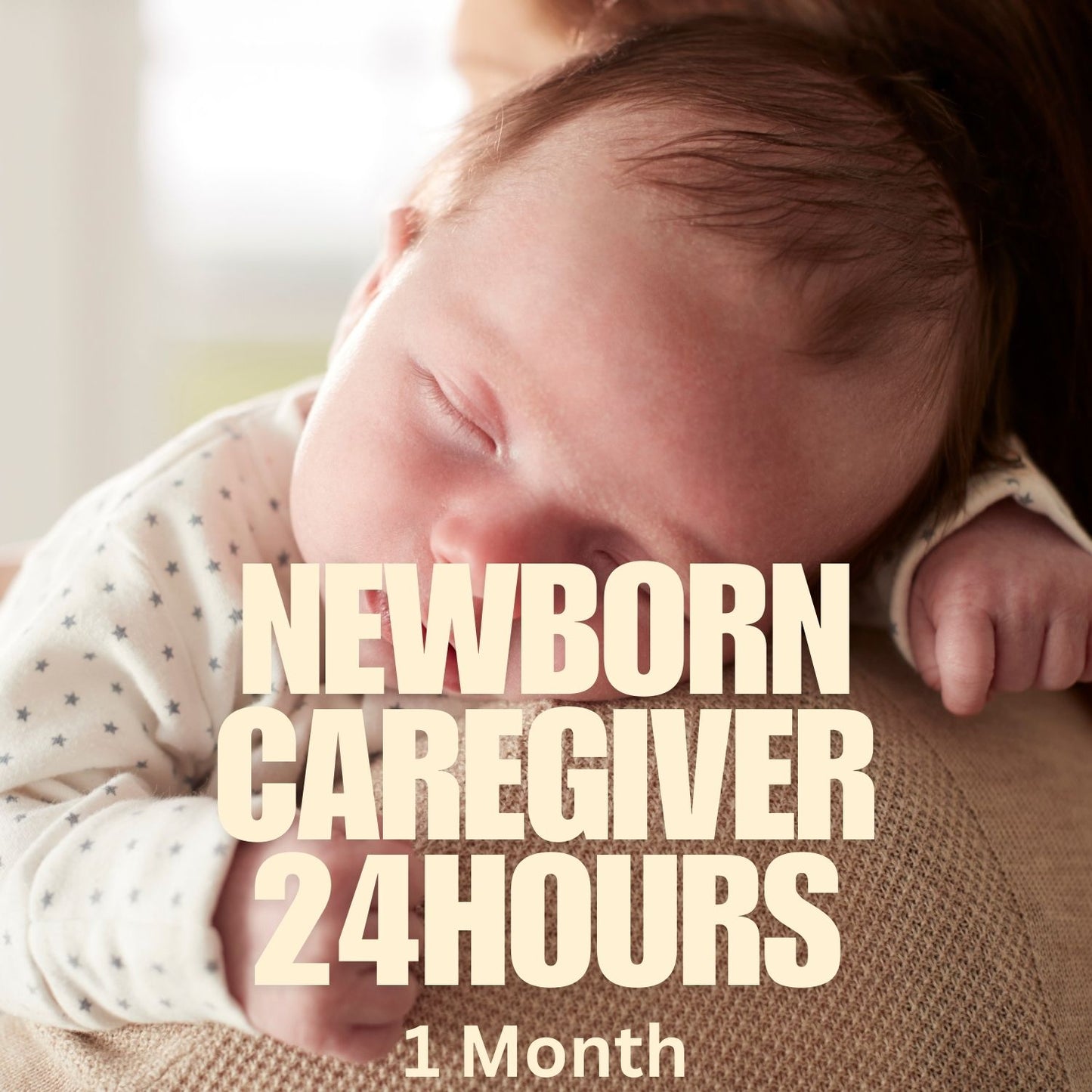
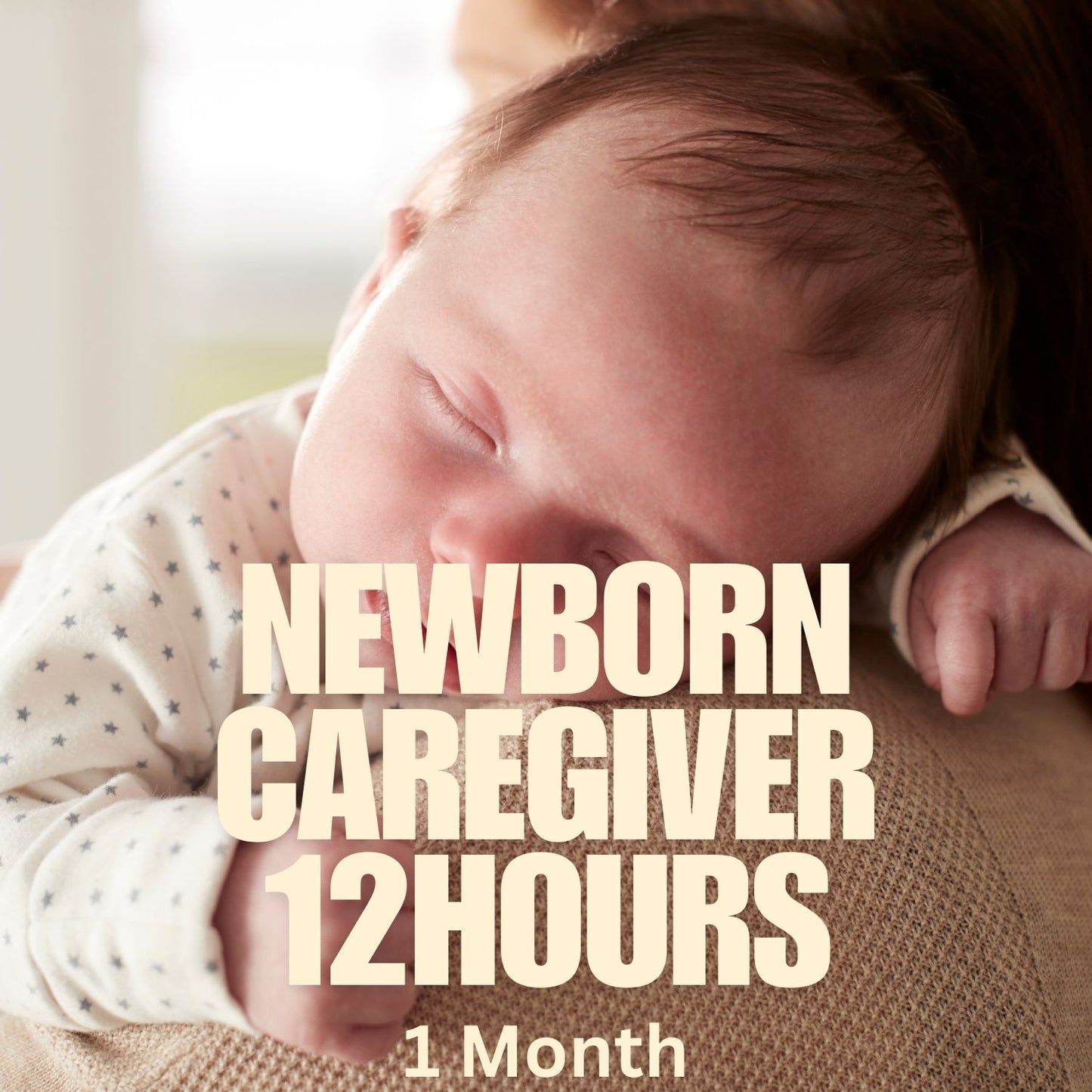
Description
Newborn Care: A Gentle Guide
Caring for a newborn can be both rewarding and challenging. Here are some essential tips for taking care of your little one:
Bathing and Diaper Changing
- Bathing: Bathe your newborn 2-3 times a week, or more often if they're dirty. Use gentle, fragrance-free baby soap and warm water.
- Diaper Changing: Change your baby's diaper frequently to prevent diaper rash. Clean the diaper area gently with warm water and a soft cloth. Use fragrance-free baby wipes and apply a diaper rash cream as needed.
Feeding and Burping
- Feeding: Breastfeed or formula-feed your baby on demand. Burp your baby after each feeding to prevent gas and spitting up.
- Burping Techniques: Hold your baby upright, support their head, and gently pat their back. You can also try burping them while sitting on your lap, facing away from you.
Sleep Monitoring
- Safe Sleep Practices: Always place your baby on their back to sleep in a crib. Avoid using soft bedding, pillows, or loose blankets.
- Sleep Cues: Pay attention to your baby's sleep cues, such as yawning, rubbing their eyes, or becoming fussy.
- Consistent Sleep Routine: Establish a consistent bedtime routine to help your baby wind down.
Temperature Regulation
- Dress Appropriately: Dress your baby in layers of clothing that you can easily adjust.
- Room Temperature: Keep your baby's room temperature between 68-72°F (20-22°C).
- Avoid Overheating: Overheating can be dangerous for babies. Check your baby's skin temperature to ensure they're not too hot.
Remember, every baby is different. If you have any concerns about your baby's health or development, consult your pediatrician.
Infant Massage: A Bond-Strengthening Touch
Infant massage is a gentle technique that involves stroking your baby's skin with your hands. It's not only relaxing for your baby but also a fantastic way to bond with them. Here are some gentle techniques to get you started:
When to Massage:
- Choose a time when your baby is calm and alert, typically after a feeding and diaper change.
- Ensure the room is warm and draft-free.
What You'll Need:
- A soft, clean towel
- A gentle, fragrance-free baby massage oil or lotion
Basic Massage Techniques:
- Legs and Feet:
- Gently stroke your baby's legs from the thighs to the ankles.
- Use circular motions on their feet and toes.
- Arms and Hands:
- Stroke your baby's arms from the shoulders to the fingertips.
- Gently massage their hands and fingers.
- Chest and Stomach:
- Use gentle, circular motions on your baby's chest.
- For the stomach, use a clockwise motion to aid digestion.
- Back:
- Lay your baby on their tummy and gently stroke their back from the neck to
the buttocks. - Avoid pressing too hard on their spine.
- Face:
- Gently stroke your baby's forehead, cheeks, and chin.
- Avoid their eyes and nose.
Tips for a Relaxing Massage:
- Talk Softly: Use a soothing voice to calm your baby.
- Observe Your Baby: If your baby seems uncomfortable, stop the massage and try again later.
- Keep it Short: Start with short massages and gradually increase the duration as your baby gets used to it.
- Enjoy the Moment: Focus on bonding with your baby and enjoying the experience.
Remember, infant massage is a wonderful way to connect with your baby and promote their overall well-being.
Always consult your pediatrician before starting any new routine, especially if your baby has any health conditions.
Developmental Monitoring: A Guide for Parents
Developmental milestones are the skills and abilities that most children achieve by a certain age. Tracking your baby's development can help you identify any potential delays and address them early on.
Here are some key developmental areas to monitor:
Physical Development
- Gross Motor Skills: Rolling over, sitting up, crawling, standing, walking.
- Fine Motor Skills: Reaching, grasping, pincer grasp, eye-hand coordination.
Cognitive Development
- Problem-solving: Learning to solve puzzles and stack blocks.
- Memory: Recognizing familiar faces and objects.
- Attention Span: Focusing on activities for increasing periods.
Language Development
- Cooing and Babbling: Making sounds and vocalizations.
- First Words: Saying simple words like "mama" or "dada."
- Understanding Language: Responding to simple commands and questions.
Social and Emotional Development
- Social Skills: Smiling, laughing, engaging in social play.
- Emotional Regulation: Learning to express and manage emotions.
Attachment:
Forming strong bonds with caregivers.
Tips for Tracking Development:
- Regular Check-ups: Schedule regular check-ups with your pediatrician.
- Developmental Screenings: Pediatricians use standardized tools to assess your child's development.
- Observe Your Baby: Pay attention to your baby's daily activities and milestones.
- Track Milestones: Use a baby development tracker to record your baby's progress.
Consult with Professionals: If you have concerns about your baby's development, talk to your pediatrician or a child development specialist.
Remember: Every child develops at their own pace.
While it's important to be aware of developmental milestones, don't worry if
your baby doesn't reach them exactly on time. If you have any concerns, consult
with your pediatrician.
Helpful Resources:
- Centers for Disease Control and Prevention (CDC): Provides information on developmental milestones and early intervention.
- American Academy of Pediatrics (AAP): Offers guidelines and advice on child development and health.
By tracking your baby's development, you can celebrate their achievements and address any concerns promptly.
Sleep Training for Newborns: A Gentle Approach
Understanding Newborn Sleep
Newborns have unique sleep patterns that differ significantly from adults. They often sleep in short bursts throughout the day and night. It's important to establish a consistent sleep routine, but formal sleep training methods aren't recommended for newborns as they cannot self-soothe.
Here are some gentle strategies to help your newborn develop healthy sleep habits:
Creating a Sleep-Conducive Environment
- Consistent Bedtime Routine: Establish a calming bedtime routine, such as a warm bath, a gentle massage, and a quiet story.
- Dark, Quiet Room: Ensure the baby's sleep environment is dark, quiet, and at a comfortable temperature.
- Safe Sleep Practices: Always place your baby on their back to sleep in a crib. Avoid soft bedding, pillows, and loose blankets.
Responding to Cues
- Recognize Sleep Cues: Pay attention to your baby's sleep cues, such as yawning, rubbing their eyes, or becoming fussy.
- Timely Sleep: Put your baby to bed when they show signs of tiredness.
- Gentle Soothing: Use gentle patting, shushing, or rocking to soothe your baby back to sleep if they wake up during the night.
Feeding and Sleep
- Nighttime Feedings: As your baby grows, gradually reduce nighttime feedings.
- Avoid Overfeeding: Avoid overfeeding your baby, as it can disrupt their sleep.
- Burping: Burp your baby after each feeding to prevent discomfort and gas.
Patience and Flexibility
- Avoid Stress: Remember that sleep training takes time and patience. Avoid getting frustrated or stressed.
- Flexibility: Be flexible and adjust your approach as your baby's needs change.
Consult Your Pediatrician: If you have concerns about your baby's sleep, consult your pediatrician for advice.
Remember, every baby is different, and what works for one may not work for another. It's important to be patient and consistent 1 in your approach. Creating a nurturing sleep environment and responding to your baby's cues can help them develop healthy sleep habits.
Postpartum Care: Nurturing Motherhood
Postpartum care is essential for a mother's physical and emotional recovery after childbirth. It involves a range of support services to help new mothers adjust to their new role and care for their newborn.
Breastfeeding Support
- Latching Techniques: Proper latching is crucial for successful breastfeeding. A lactation consultant can help ensure your baby latches on correctly.
- Milk Supply: If you're struggling with milk supply, a lactation consultant can provide tips and techniques to increase production.
- Common Challenges: Address common breastfeeding challenges like sore nipples, mastitis, and low milk supply.
Physical Recovery
- Pelvic Floor Exercises: Kegel exercises help strengthen the pelvic floor muscles, which can be weakened during childbirth.
- Rest and Relaxation: Prioritize rest and relaxation to allow your body to recover.
- Postpartum Check-ups: Regular check-ups with your healthcare provider are essential to monitor your physical recovery and address any concerns.
Emotional Support
- Postpartum Depression: Be aware of the signs of postpartum depression and seek help if needed.
- Stress Management: Practice relaxation techniques like meditation, yoga, or deep breathing to manage stress.
- Support Networks: Connect with other new mothers, join support groups, or seek counseling to share experiences and receive emotional support.
Practical Tips for New Moms
- Healthy Diet: Eat a balanced diet rich in fruits, vegetables, and protein to support your body's recovery.
- Hydration: Drink plenty of water to stay hydrated.
- Sleep: Prioritize sleep whenever possible.
- Self-Care: Take time for yourself to rest, relax, and recharge.
By prioritizing postpartum care, new mothers can recover from childbirth, bond with their babies, and enjoy the journey of motherhood.
Infant CPR and First Aid Training: A Lifesaver
Infant CPR and First Aid training is an invaluable skill for parents and caregivers. Knowing how to respond quickly and effectively in an emergency can save a child's life.
Why is it important?
- Early Intervention: Immediate action can significantly increase a child's chances of survival.
- Confidence: Knowing you have the skills to help can reduce stress and anxiety in an emergency.
- Peace of Mind: Feeling prepared can provide peace of mind and allow you to focus on your child.
What is covered in a typical infant CPR and First Aid
course?
Infant CPR:
- Recognizing cardiac arrest in infants.
- Performing chest compressions.
- Giving rescue breaths.
Choking:
- Identifying choking signs.
- Performing back blows and chest thrusts.
Burns:
- Treating minor burns.
- When to seek medical attention.
Poisoning:
- Responding to accidental poisoning.
- Knowing when to call for help.
Fever:
- Recognizing fever symptoms.
- Managing fever safely.
Where to learn:
- Local Hospitals and Clinics: Many hospitals and clinics offer infant CPR and First Aid courses.
- Community Centers: Check your local community center for upcoming classes.
- Online Courses: Several online platforms offer certified CPR and First Aid courses.
Remember:
- Practice Regularly: Practice the techniques regularly to stay confident.
- Update Your Skills: Keep your skills up-to-date by attending refresher courses.
- Stay Calm: In an emergency, staying calm can help you think clearly and act effectively.
By taking an infant CPR and First Aid course, you can be prepared to handle emergencies and provide life-saving care for your child.
ALL SERVICES
-
Long-Term Patient Care
Regular price From 7,500.00 SARRegular priceUnit price / per -
Remote Consultation
Regular price From 150.00 SARRegular priceUnit price / per -
Physical Therapy Services at Home
Regular price From 350.00 SARRegular priceUnit price / per -
Wound Care Management & Diabetic Foot Care
Regular price From 350.00 SARRegular priceUnit price / per -
Catheter Care & Insertion (NGT/ Foley Cath)
Regular price 380.00 SARRegular priceUnit price / per -
Nebulization Service
Regular price 300.00 SARRegular priceUnit price / per -
Women's Healthcare Services at Home
Regular price From 350.00 SARRegular priceUnit price / per -
Men's Healthcare Services at Home
Regular price From 450.00 SARRegular priceUnit price / per -
Pediatric Homecare Services
Regular price From 250.00 SARRegular priceUnit price / per -
Holistic Health and Wellness Services
Regular price From 300.00 SARRegular priceUnit price / per -
Travel Companion Healthcare Services
Regular price 1,200.00 SARRegular priceUnit price / per -
At-Home Laboratory Services
Regular price From 165.00 SARRegular priceUnit price / per -
Portable Radiology Services
Regular price From 650.00 SARRegular priceUnit price / per -
Wound Care Management Training
Regular price 750.00 SARRegular priceUnit price / per -
Post-Bariatrics Surgery Care (1 Day)
Regular price 800.00 SARRegular priceUnit price / per -
TKR/THR Pre & Post-Operative Care 10 Days
Regular price 12,000.00 SARRegular priceUnit price / per -
Injection Administration at Home
Regular price 250.00 SARRegular priceUnit price / per -
IV Therapy
Regular price 1,350.00 SARRegular priceUnit price / per -
Palliative Care
Regular price 600.00 SARRegular priceUnit price / per -
Medication Management
Regular price 300.00 SARRegular priceUnit price / per -
Newborn Baby Care
Regular price From 350.00 SARRegular priceUnit price / per -
Corporate Wellness Services
Regular price 800.00 SARRegular priceUnit price / per -
Therapeutic Massage
Regular price 350.00 SARRegular priceUnit price / per




























